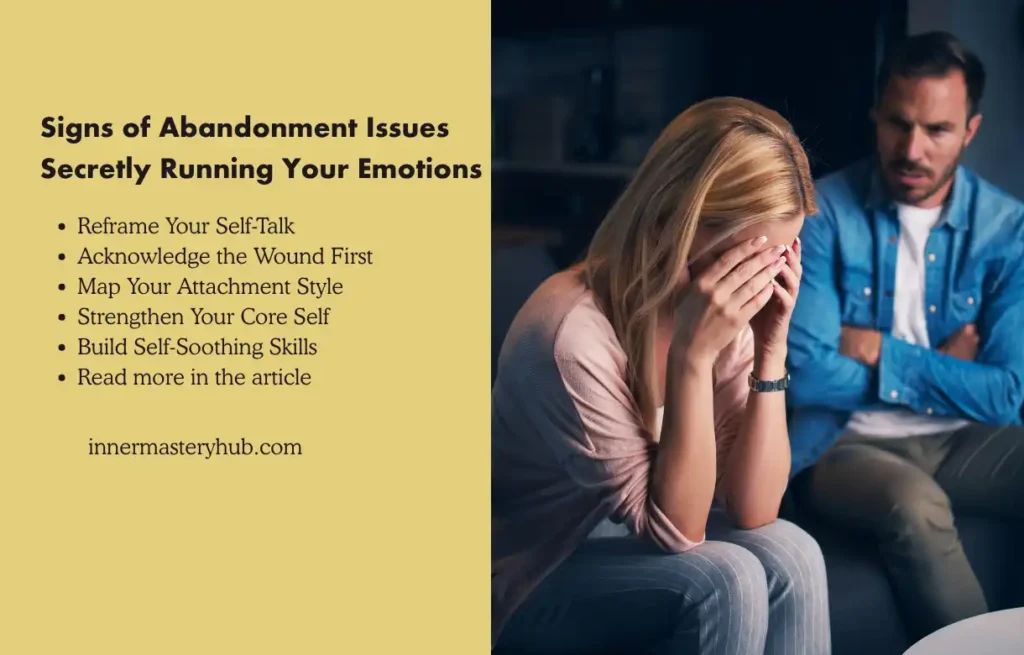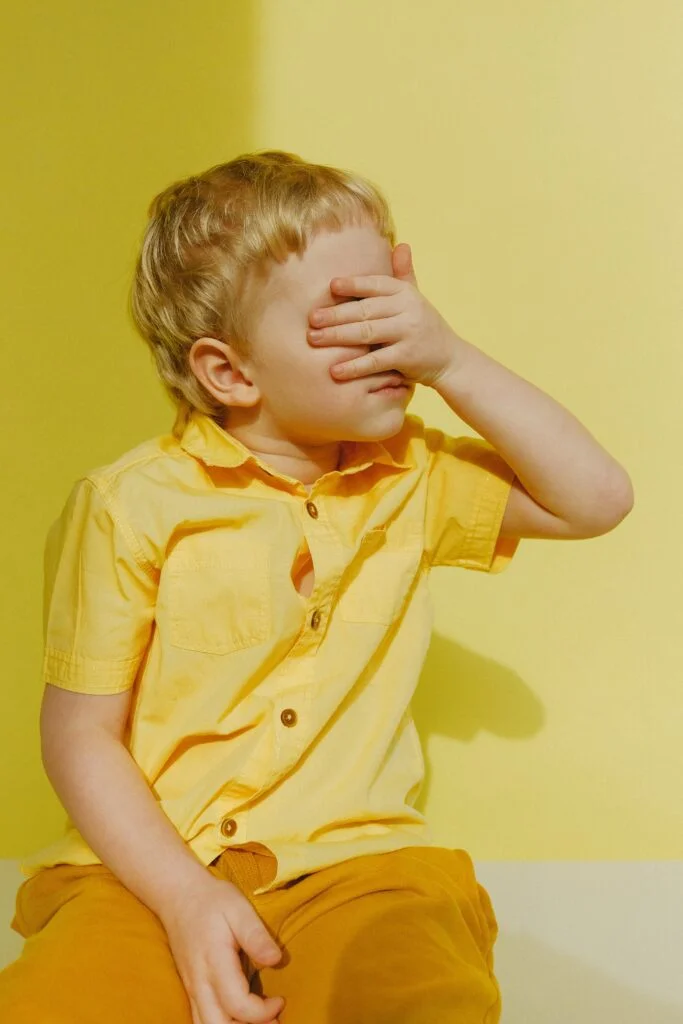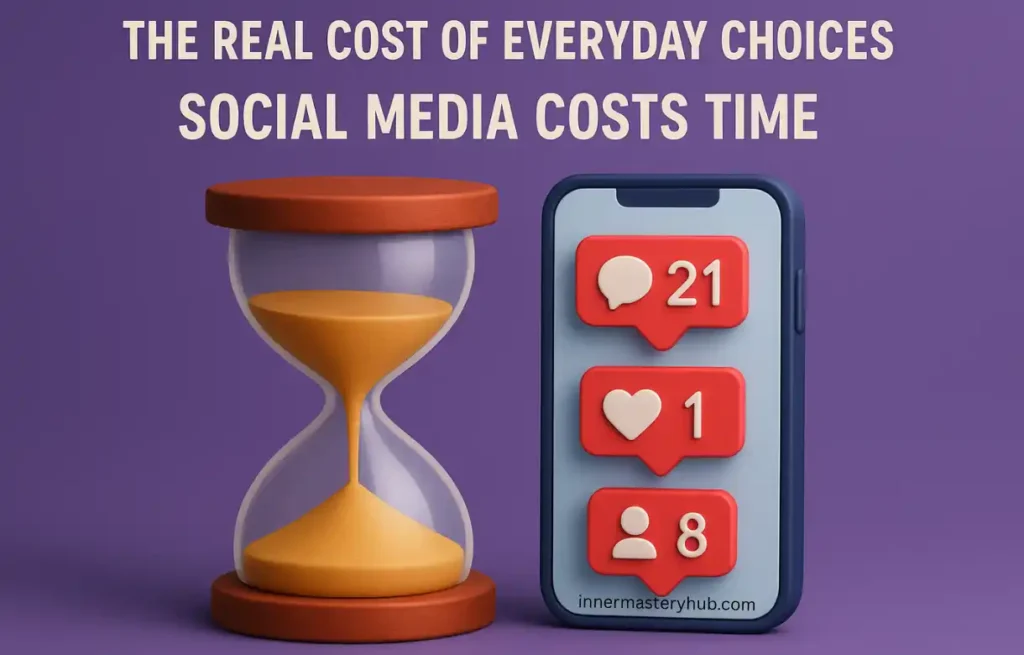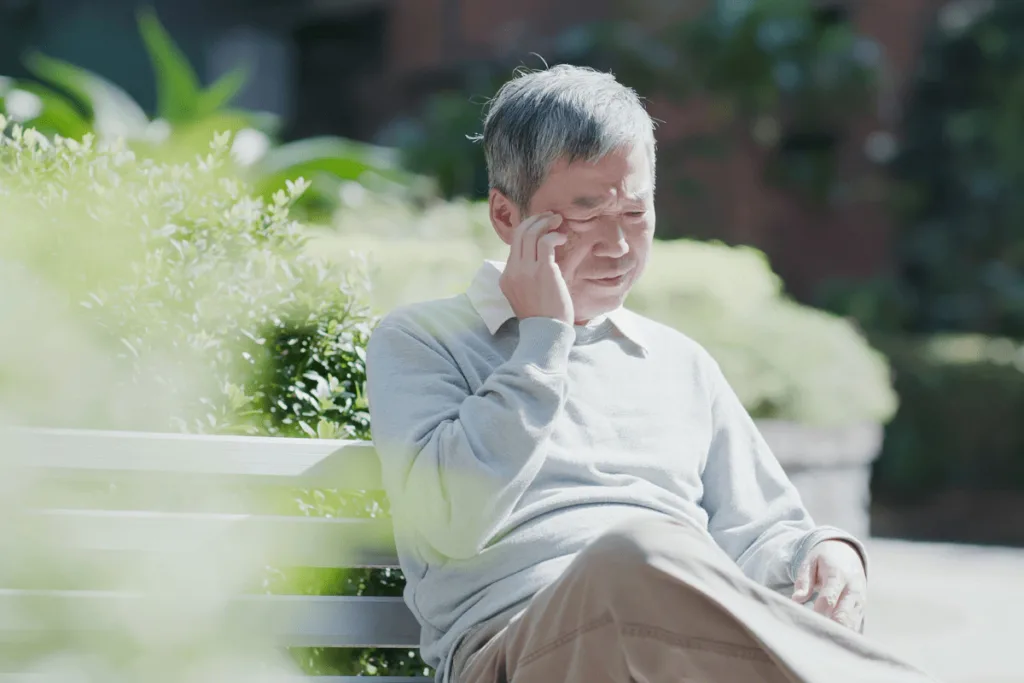Compulsive vs Impulsive Behavior: The Brain Battle You Didn’t Know You Were Fighting
Compulsive vs Impulsive Behavior
Compulsive behavior is repetitive and driven by anxiety or a need to reduce distress; someone feels they must do it (like checking or washing), even if it’s unwanted. Impulsive behavior is sudden and driven by urges or rewards; someone acts quickly without thinking through consequences (like risky spending). Both can disrupt daily life.
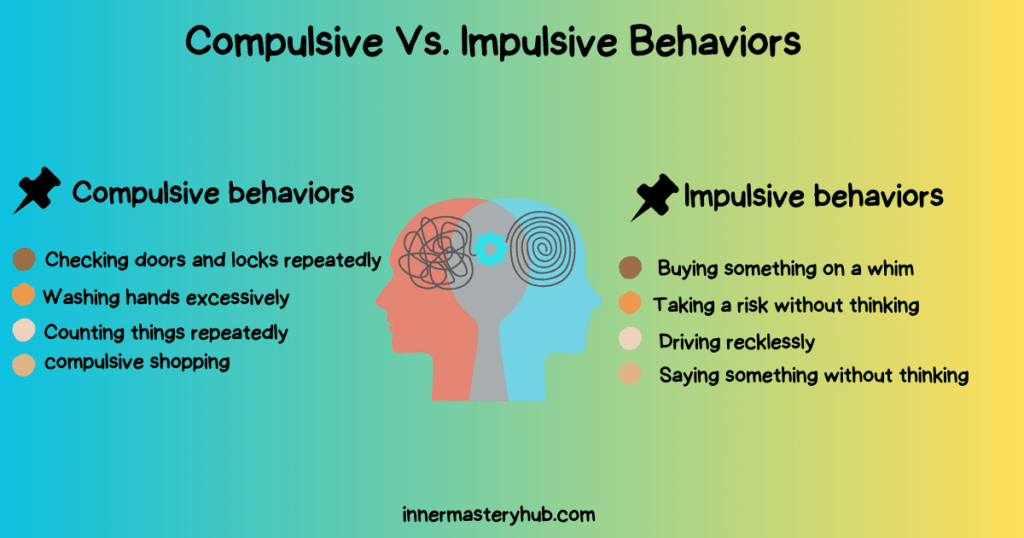
Human conduct is complicated. Sometimes we act instinctively and without giving it any thought. At other times, even when an action doesn’t bring us happiness, we are motivated to repeat it. Impulsive or compulsive behaviours are the terms used to describe these two patterns.
Both can affect connections, work, daily life, and mental health. Due to their superficial similarity, many people mistake the two. However, there are significant differences between them, and the first step to taking back control is recognising them.
Compulsive Vs Impulsive behaviour
Compulsive and impulsive behaviours can often be misunderstood. Both imply acting frequently or without giving it any thought. However, their causes are different.
Impulsive behaviour happens when someone acts without considering the consequences. It is comparable to pressing the “go” button before the brain has had a chance to say “stop.” For instance, overspending on unnecessary items or uttering cruel phrases out of rage.
When someone feels compelled to repeat an action against their will, they are engaging in compulsive behaviour. The action is taken to soothe tension or prevent a feared outcome. For instance, frequently washing your hands can help you feel less worried about germs.
Psychologists explain the difference this way:
Impulsivity is about a lack of control in the moment.
Compulsivity is characterised by repetitive behaviour that feels forced.
According to the American Psychiatric Association1, these behaviours are linked to conditions like ADHD, OCD, substance use disorder, and mood disorders.
Examples of compulsive behaviours
- Checking doors and locks repeatedly
- Washing hands excessively
- Counting things repeatedly
- Arranging objects in a specific order
- Engaging in rituals or routines
- compulsive shopping
- compulsive buying
Examples of impulsive behaviours
- Impulsive spending (buying things without planning)
- Binge eating or drinking
- Sudden emotional outbursts (like yelling or crying)
- Aggressive behavior
- Oversharing personal information
- Abruptly quitting jobs or cancelling plans
- Reckless or risky behaviour
Impulsive and compulsive behaviours feel sudden, but they rarely appear from nowhere. They are usually the final step in a deeper emotional process, which is why understanding the full sequence through behaviour chain analysis can reveal what actually happens between the trigger and the action.
Causes of Compulsive vs Impulsive Behaviour
Impulsive and compulsive behaviours have complex biological, psychological, and social underpinnings.
1. Biological factors
Research suggests a possible genetic foundation for obsessive and impulsive behaviours. The prefrontal cortex, which is responsible for planning, decision-making, and impulse control, has been linked to anomalies in impulsive and compulsive behaviours. Dopamine is a neurotransmitter involved in motivation and reward that influences both obsessive and impulsive behaviours.
2. Psychological factors
Impulsivity is more common among individuals with inclinations toward sensation- and novelty-seeking. Among compulsive users, anxiety and perfectionism are two psychological traits that are more common.
Anxiety disorders, obsessive-compulsive disorder (OCD), ADHD, addiction, and other mental health illnesses can all cause compulsive and impulsive behaviour. Compulsive vs impulsive behaviour may become more prevalent if a person has experienced traumatic events, such as abuse or neglect.
3. Social factors
Stressful situations may exacerbate impulsive or compulsive behaviours. Observing others, such as parents or classmates, can educate people to behave impulsively or compulsively. The definition of compulsive or impulsive behaviour varies by culture.
4. Risk factors
Impulsive reactions and a lack of impulse control are more common in younger individuals.
Compared to women, men are more likely to engage in compulsive vs impulsive actions.
Abuse of substances may increase the likelihood of obsessive and impulsive behaviours. A history of mental health difficulties is associated with an increased risk of compulsive vs impulsive actions.
Not everyone who exhibits impulsive or compulsive behaviours has a co-occurring medical condition. For many people, these behaviours are common and may not pose a serious threat to their day-to-day lives. When impulsive or compulsive behaviors cause substantial discomfort or negatively impact one’s quality of life, it is imperative to seek professional help.
Compulsive and Impulsive Behaviors Impact
Long-term detrimental effects on people and society can result from impulsive and obsessive behaviours. Among the financial issues that may result from impulsive behaviour are debt, bankruptcy, and unstable economic markets.
Legal issues. Snap decisions can result in jail time, convictions, and arrests.
Relationship issues. Impulsive Reactions can harm friendships, family ties, and intimate relationships.
Health issues. Impulsive actions that result in accidents, injuries, and long-term health issues include reckless driving and drug usage.

Compulsive behaviours can lead to
- Time consumption. Compulsive rituals and routines can consume significant time, interfering with work, personal relationships, and leisure activities.
- Reduced productivity. Compulsive behaviours can make it difficult to focus and concentrate, leading to decreased productivity at work and in school.
- Social isolation. Compulsive behaviours can make it difficult to maintain healthy relationships, leading to social isolation and increased feelings of loneliness.
- Exacerbated anxiety. Compulsive behaviours are often an attempt to reduce stress, but they can worsen anxiety in the long run.
Mental health conditions due to Compulsive vs Impulsive behaviors
Impulsive and compulsive behaviors can be symptoms of several mental health conditions. Some of the most common conditions associated with these behaviors include:
Impulsive disorders
- Attention-deficit hyperactivity disorder (ADHD)
- Disruptive mood dysregulation disorder (DMDD)
- Bipolar disorder
- Borderline personality disorder (BPD)
- Body dysmorphic disorder (BDD)
Compulsive disorders
- Obsessive-compulsive disorder (OCD)
- Intermittent explosive disorder (IED)
- Impulse control disorders not otherwise specified (ICD)
- Body dysmorphic disorder (BDD)
What is the difference between impulsive and compulsive lying?
Impulsive lying happens quickly, often in the moment, without planning. Someone lies to avoid trouble, impress others, or escape discomfort. Compulsive lying is more repetitive and harder to control, even when there’s no clear benefit. The person may lie out of habit or anxiety and feel unable to stop.
Compulsive vs impulsive thoughts?
Compulsive thoughts are repetitive, unwanted ideas that create anxiety and feel hard to ignore. People may think they must do something to feel “safe” or relieved. Impulsive thoughts are sudden urges or ideas that prompt quick action for pleasure or relief, often without considering consequences. Both can be stressful.
4 Ways to Deal With Compulsive vs Impulsive Behaviors
The good news is that you can learn to manage both impulsive and compulsive habits. Here are four practical solutions:
1. Identify the Trigger
- Intense emotions, such as anger, excitement, or sadness, trigger impulsive behaviour.
- Anxious thoughts or fears usually trigger compulsive behaviour.
Keep a simple journal. Write down what happened before the behaviour, what you did, and how you felt afterwards. Over time, patterns will become clear.
Journaling has been found to improve awareness and reduce unwanted habits.
2. Practice Pause Techniques
When you feel the urge to act impulsively or compulsively, try to create a pause. Even a few seconds can make a difference.
- Count to 10 before acting.
- Take three deep breaths.
- Remind yourself: “I don’t have to do this right now.”
These small steps break the automatic cycle. Over time, they build stronger self-control.
Mindfulness and breathing exercises have been shown to reduce impulsive and compulsive behaviors2.
3. Replace the Behavior With a Healthier Action
You cannot always “stop” a behavior. But you can redirect the energy into something healthier.
- If you feel the urge to buy something impulsively, write it on a list and review it later.
- If you feel the need to repeat a compulsive action, try switching to a calming activity, such as walking or listening to music.
This technique, called habit substitution, helps retrain the brain to expect healthier patterns.
Studies show habit replacement can reduce3 compulsive behaviors in conditions like OCD.
4. Seek Professional Support
Sometimes, impulsive and compulsive behaviors are too strong to manage on one’s own. A therapist, counselor, or doctor can help.
- Cognitive Behavioral Therapy (CBT) is one of the most effective treatments for both impulsive and compulsive behaviors.
- In some cases, medication may also be helpful.
Remember, asking for help is not a weakness. It is a smart step toward taking control of your life.
CBT is widely recognized as an effective treatment for impulsivity and compulsivity.
Takeaway
Impulsive or Compulsive behaviors are signs of a variety of mental health issues. The primary distinction between the two behaviors is that impulsivity is more impulsive and unplanned, and compulsivity is more planned. Talk to a therapist if the psychiatric disorder worsens.
FAQS About Impulsive or Compulsive Behaviors
What is the difference between impulsive and compulsive behaviors?
Impulsive behavior occurs suddenly, without considering the consequences. Compulsive behavior is repetitive and driven by an urge that feels hard to resist. Impulsivity is quick and spontaneous, while compulsivity is repetitive and often linked to anxiety relief. Both can disrupt daily life if uncontrolled.
What causes impulsive behavior?
Stress, intense emotions, ADHD, substance use, or specific mental health conditions can cause impulsive behavior. It happens when the brain’s control systems are weaker than emotional drives. Sometimes it’s temporary, but frequent impulsivity may signal an underlying disorder needing professional support.
Can impulsive behavior be a sign of ADHD?
Yes, impulsive behavior is a common ADHD symptom. People may interrupt, act without thinking, or struggle to wait. ADHD affects self-control and attention regulation. While everyone can act impulsively sometimes, frequent patterns in school, work, or relationships may signal ADHD and benefit from professional assessment.
Can you be both impulsive and compulsive?
Yes, a person can be both impulsive and compulsive. You might act quickly on urges in some moments (impulsive), and repeat certain actions to reduce anxiety or feel “right” in other moments (compulsive). Some conditions and stress patterns can include both, and they may overlap in daily life.
Compulsive vs impulsive behaviour examples?
Compulsive behaviour examples: repeatedly checking locks, washing hands many times, arranging items in a strict order, or rereading messages to feel “sure.” Impulsive behaviour examples: buying things suddenly, interrupting others, speeding, risky drinking, or reacting in anger without thinking. Compulsions reduce anxiety; impulses chase quick relief and excitement.
Impulsive vs compulsive addiction?
Impulsive addiction starts with chasing pleasure or excitement, acting fast without thinking, like binge drinking or gambling on a sudden urge. Compulsive addiction develops into “I can’t stop,” even when it causes harm, using the substance or behavior to avoid discomfort, stress, or withdrawal. Many addictions shift from impulsive to compulsive over time.
- Diagnostic and statistical manual of mental disorders ↩︎
- Mindfulness and Behavior Change ↩︎
- Habit Reversal Therapy in Obsessive Compulsive Related Disorders* ↩︎

